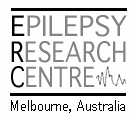Genetics of Epilepsy
The Epilepsy Genetics Group has been studying the inheritance of seizures in twins, families and individuals for over 25 years. The Epilepsy Genetics group comprises a large clinical epilepsy research team and the Epilepsy Molecular Genetics Laboratory. Together with collaborators at the University of Adelaide, the Walter and Eliza Hall Institute and colleagues around the world, we are international leaders in the genetics of epilepsy. So far more than 20,000 people have participated in our research studies.
Although epilepsy can be acquired in some people (through a severe head injury for example), there is strong evidence that genetic factors may cause or contribute to many types of epilepsy. There is often a family history of epilepsy or seizures in patients with certain types of epilepsy. Similarly, among twins with epilepsy, it is more common for identical twins to both experience seizures than for non-identical twins. We believe that by identifying genes and understanding the basic molecular mechanisms of the inherited epilepsies we will gain a deeper understanding into the disorder, with implications for diagnosis and development of more effective treatments.
Together with our molecular genetics colleagues we identified the first epilepsy gene (a nicotinic receptor subunit CHRNA4) in 1995 and since then we have continued to be the international leaders in gene discovery for epilepsy. Over the last 20 years, there has been a virtual explosion in the number of genes linked with epilepsy, with more than 400 genes associated with seizures.
However, despite these findings, there is still much more to discover. The genetic cause is still unknown in the majority of people with epilepsy. Many genes that have been identified so far either cause very rare types of epilepsy or are rare causes of the more common types of epilepsy. In addition, we believe that the common genetic epilepsies are caused by a number of genes acting together, making it much harder to identify each individual gene. We are excited about future progress in this area and continue our research efforts to uncover more genetic causes of epilepsy as well as understanding how these causes disrupt the normal function of the brain to cause seizures.
How do we study the genetics of epilepsy?
What happens next?
Once a gene is identified we attempt to understand how it causes epilepsy. This is done by a number of methods including replicating the changes we see in the gene in simple systems (such as single cells) or in whole animals. We have a group of talented collaborators at the University of Melbourne, the Florey Institute of Neuroscience and Mental Health, and internationally who are helping us with this.
We hope that understanding how these genes cause epilepsy will lead to a deeper understanding of epilepsy and possibly new treatments. The development of new treatments may take many years, but the genetic research and the blood samples we collect are the important beginning.
Our Discoveries
Since we started investigating the genetics of epilepsy we have been involved in making many important discoveries. These include describing several genetic epilepsy syndromes (such as Autosomal Dominant Nocturnal Frontal Lobe Epilepsy (ADNFLE) and Generalised Epilepsy with Febrile Seizures Plus (GEFS+)), and being involved in the localization or identification of several epilepsy genes.
Our extensive work in this area has contributed to the development of the concept of channelopathies ("diseases of ion channels") being the underlying cause of many idiopathic (genetic) epilepsies. More details regarding our findings are available in our annual newsletters and publications.
How is the research funded?
We currently receive funding from research grants from the National Health and Medical Research Council of Australia as well as from small philanthropic organisations and individuals.
No matter what size your donation is, the amount is greatly appreciated and will be used for the sole purpose of investigating epilepsy to achieve the optimum results for those with epilepsy and their families and friends. To find out more about the impact of giving or how to donate click here.
Project Highlights
Clinical Group

Professor Sam Berkovic
AC | FAHMS | FAA | FRACP | FRS
Professor of Neurology, The University of Melbourne and Florey Institute

Professor Ingrid Scheffer
AO | FAHMS | FAA | FRACP | FRS
Professor of Paediatric Neurology, The University of Melbourne and Florey Institute, Austin Health and the Royal Children's Hospital, Melbourne

A/Prof Piero Perucca
MD | PhD | FRACP
Associate Professor of Adult Epilepsy, The University of Melbourne, and Director of the Bladin-Berkovic Comprehensive Epilepsy Program, Austin Health
Clinical Research Team
Amy Schneider
Senior Clinical Research Assistant
Talia Allan
Clinical Research Assistant
Kate Esnault
Senior Clinical Research Assistant
Bryce Thomas
Clinical Research Assistant
Josh Stent
Administrative Assistant
Caitlin Bennett
Senior Clinical Research Assistant
Olivia Hoeper
Clinical Research Assistant
Shannyn Genders
Clinical Research Assistant
Marie Inder
Research and Portfolio Manager
Lisa Johnson
PA to Sam Berkovic
Rebekah Harris
Senior Clinical Research Assistant
Sophie Russ-Hall
Clinical Research Assistant
Nico Lieffering
Clinical Research Assistant
Dr Michelle Dang
Neurologist and PhD Student
Natasha Crawford
PA to Ingrid Scheffer
Molecular Genetics Laboratory
Professor Michael Hildebrand
Tim Green
PhD Student
Josh Reid
Research Assistant
Sian Macdonald
Technical Assistant
Harshini Thiyagarajah
PhD Student
Tom Witkowski
Research Assistant
Bioinformatics
Dr. Mark Bennett
Neblina Sikta
Dr Karen Oliver
Bronwyn Grinton
PhD Student




